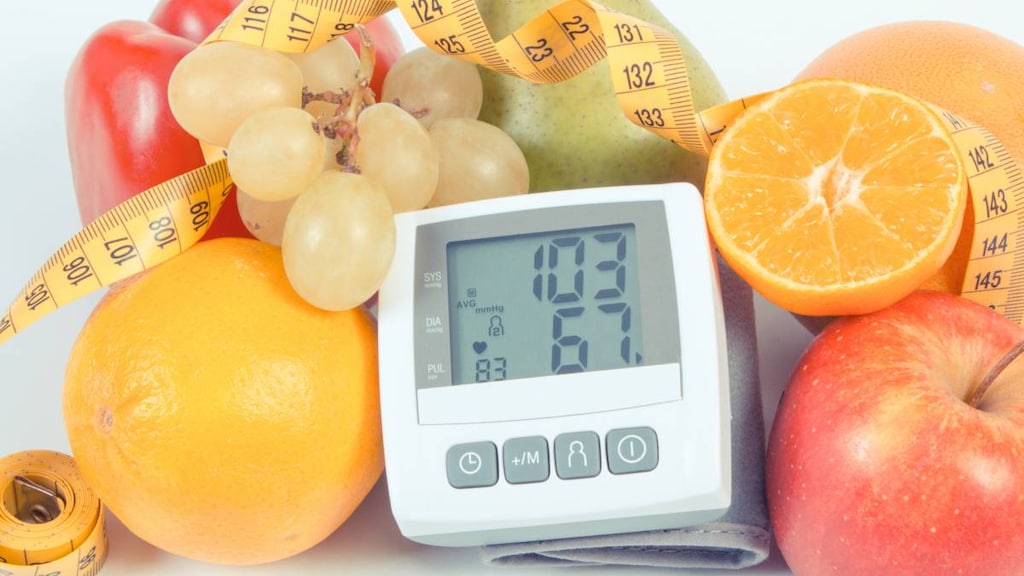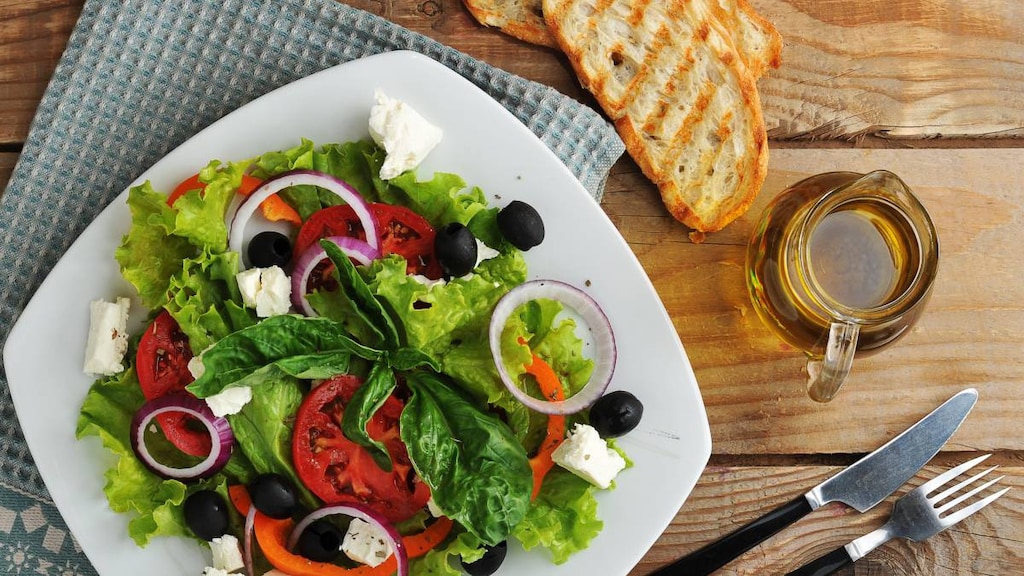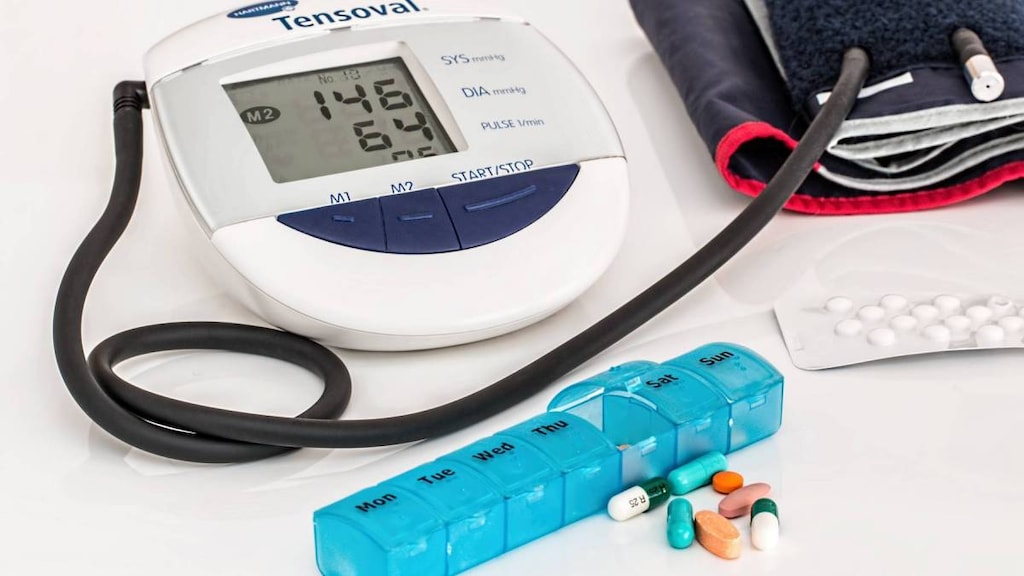11 Ways to lower blood pressure naturally

High blood pressure, or hypertension as it is also called, is when your blood pressure is higher than normal. High blood pressure causes your heart to have to pump more forcefully to move the blood around your body and this puts strain on your heart and can damage blood vessels. Uncontrolled high blood pressure puts you at higher risk of heart disease, heart attack, kidney failure, stroke and other serious medical conditions.
High blood pressure is often referred to as the ‘silent killer’ because it may not cause obvious symptoms. You could have high blood pressure and not know it until significant damage has been done.
Checking your blood pressure, however, is simple and easy with a blood pressure monitor. A blood pressure monitor tells you your systolic blood pressure (upper number) and diastolic blood pressure (bottom number), both of which are important. Your healthcare provider can check your blood pressure for you or you can purchase a monitor to use at home.
Blood pressure categories
|
Category |
Systolic blood pressure mm Hg |
Diastolic blood pressure mm Hg |
|
|
Normal |
120 or less |
and |
80 or less |
|
Elevated |
120-129 |
and |
80 or less |
|
High |
130 or more |
or |
80 or more |
|
Hypertensive crisis (Seek medical assistance immediately) |
180 or more |
and/or |
120 or more |
If your results indicate that your blood pressure is elevated or high, then talk to your healthcare provider about what treatment is right for you.
A healthy diet and lifestyle changes can also help to prevent or manage high blood pressure. Here are 11 options to try at home.
1. Follow the DASH diet
The DASH (Dietary Approaches to Stop Hypertension) diet is a low sodium diet that helps reduce high blood pressure. It consists of:
- Nutrient-rich fruits and vegetables
- Fat-free and low-fat dairy products
- Whole grains, nuts, seeds, beans and vegetable oils
- Fish, poultry, and lean red meat
- Eliminating foods and beverages that are high in saturated fats, cholesterol, sugar and salt
- Limiting alcohol
The DASH diet is rich in protein and fiber, as well as potassium, magnesium and calcium.
Consult your healthcare provider or dietitian if you need help getting started on the Dash diet.
2. Lose the excess weight
If you’re overweight your heart has to work harder to pump the blood around your body and this increases your chances of developing high blood pressure.
Losing the excess pounds and watching your waistline is a good way to help get your blood pressure under control. Excess weight, particularly around your waist, can increase your risk of a number of health conditions. It’s recommended that women do not exceed a waist measurement of 35 inches (89 cm) and men do not exceed a waist measurement of 40 inches (102 cm).
If you’re overweight, losing as little as 10 pounds (4.5kg) can help reduce high blood pressure. Eating a healthy diet and getting enough exercise can help you achieve your target weight.
3. Get moving
Exercise has been proven to reduce high blood pressure and the risk of heart disease.
The American Heart Association (AHA) recommends at least 150 minutes (2 hours and 30 minutes) of moderate-intensity exercise a week. This can be spread out over the week, doing 30 minutes every day for 5 days for example. Physical activity should include:
- Aerobic exercises daily - such as a brisk walk, jog, dancing, swimming, gardening, or walking stairs.
- Flexibility, stretching and muscle strengthening exercises on at least two to three days a week - such as yoga, pilates, resistance band exercises, or using free weights or weight machines.
If you are new to exercising then start slow and increase the amount of time you spend gradually as you get fitter. Consult your doctor before you start exercising to see what sort of exercises are right for you.
4. Reduce your salt intake
Having too much salt (sodium chloride) in your diet can lead to high blood pressure. Processed, pre-prepared and restaurant foods are the main culprits when it comes to excess salt, rather than the salt you add to your own cooking.
To reduce your salt intake and blood pressure, prepare your own food and cut down on foods high in salt, such as pre-prepared foods and snacks, fast foods and eating out. Also, check the nutrition labels on your food to find out how much salt it contains and select food that is lower in salt.
The ideal amount of sodium per day is 1500 mg (⅔ of a teaspoon of salt) for most adults, according to the American Heart Association. It also recommends a daily maximum of 2300 mg of sodium (approx. 1 teaspoon of salt) for adults.
Top 10 sources of salt
These 10 foods supply more than 40 percent of the sodium that American’s eat each day.
- Breads
- Pizza
- Sandwiches
- Deli meats, including cold cuts and cured meats
- Soups
- Taco and burritos
- Snacks such as chips, pretzels, crackers and popcorn
- Chicken
- Cheese
- Omelets and other egg dishes
5. Increase potassium
Potassium, along with sodium, helps your body maintain the fluid and blood volume it needs to function normally. While too much sodium or salt can increase your blood pressure, not enough potassium can have the same effect. Potassium helps your body to increase the amount of sodium you lose when you urinate.
It’s recommended that people with high blood pressure increase the amount of potassium in their diet. Check with your healthcare professional before changing your potassium intake, because too much potassium may be harmful to some people, especially those with kidney disease.
Potassium is found in foods such as fruits, vegetables, low-fat dairy products, and seafood. These foods are the basis of the DASH diet mentioned above. The recommended amount of potassium for an adult is 4700 mg per day.
6. Limit how much alcohol you drink
Drinking too much alcohol can increase your blood pressure, but limiting the amount you drink can help to prevent high blood pressure. Women are recommended to have no more than one drink a day, while men can have up to two. A standard drink is equal to one 12 oz. (355 ml) beer, 4 oz. (118 ml) wine, 1.5 oz. (44 ml) 80-proof spirit or 1 oz. (30 ml) 100-proof spirit.
7. Stop smoking
Smoking and high blood pressure can both cause your arteries to become narrower - combining the two together makes this process happen more quickly. Smoking also puts you at increased risk of heart attack and stroke.
If you smoke, talk to your healthcare professional about the best way to quit.
8. Take note of how much caffeine you have
Consuming caffeine can increase your blood pressure in the short-term, particularly if it’s already high. Usually blood pressure changes occur soon after having caffeine and peak after about one-to-two hours.
Occasional caffeine drinkers and people with high blood pressure are more susceptible to the sudden increase in blood pressure that follows caffeine consumption, but this effect is diminished or eliminated in habitual caffeine drinkers who develop a tolerance to caffeine.
The good news is that research suggests that a regular, moderate caffeine habit isn’t associated with an increased risk of high blood pressure. Research also indicates that consuming caffeine may even be beneficial when it comes to high blood pressure.
The results of one review showed that while light-to-moderate coffee consumption of one-to-three cups per day was associated with a slightly elevated risk of high blood pressure, consuming more than three cups of coffee per day was not. Another review also found that the risk of high blood pressure was reduced by two percent for every cup a day the participants drank.
The US Food and Drug Administration (FDA) has stated that 400 mg of caffeine per day (4-5 cups of coffee) isn’t usually associated with negative effects in healthy adults.
Caffeine can be found in coffee, tea, sodas, energy drinks and other sources.
9. Reduce stress
Stress can contribute to the development of high blood pressure. Workplace pressure, family demands, relationships, finances, illness, and events such as Covid-19 are all common causes of stress. Identifying your source of stress and finding a way to reduce them can be beneficial for your blood pressure and overall health.
There are a variety of natural ways to help relieve stress such as meditation, acupressure, deep breathing, music therapy, exercise, getting outdoors for a walk, reading a book, and counseling. Try some out and see what works best for you.
10. Get the right amount of sleep
When you’re asleep your blood pressure goes down. If you have problems sleeping then your blood pressure remains higher for a longer period.
A study has shown that sleeping for less than six hours per night or more than nine hours per night can increase your chances of developing high blood pressure. Getting seven-to-eight hours of sleep per night is recommended.
There are many ways to help you get restful sleep, such as going to bed and waking up at the same time each day, taking time to relax before bed, and avoiding napping during the day.
11. Eat dark chocolate
Dark chocolate contains 50-90 percent cocoa solids. Cocoa is rich in flavanols, which are known to decrease blood pressure.
Eating large amounts of dark chocolate isn’t recommended because you’d end up consuming too many calories. Researchers, however, have found that eating just 0.22 oz (6.3g) of dark chocolate containing 30 mg of polyphenols daily helped reduce blood pressure. Flavanols are the main polyphenol in cocoa.
The researchers conducted the small study in 44 adults with untreated prehypertension or slightly high blood pressure. Dark chocolate reduced mean systolic blood pressure by -2.9 mm Hg and diastolic blood pressure by -1.9 mm Hg. This reduced the percentage of people with high blood pressure from 86 percent at the beginning of the study to 68 percent at the end.
Dark chocolate also improved the formation of nitric oxide, which helps open up blood vessels (vasodilation). Consuming white chocolate didn’t have any effect on blood pressure or the formation of nitric oxide.
Bottom line
There are many things that you can do to help prevent and reduce high blood pressure. Diet, exercise, getting a good night’s sleep, and reducing stress are some suggestions to help you bring your blood pressure down to a healthy level.
Monitoring blood pressure regularly can help you work out what lifestyle changes are working for you.
Check with your healthcare professional before making changes to see if they are right for you.
Article references
- National Health Service UK (NHS). Prevention. High blood pressure (hypertension). 23 October, 2019. Available at: https://www.nhs.uk/conditions/high-blood-pressure-hypertension/prevention/ [Accessed August 6, 2021].
- Medline Plus. How to Prevent High Blood Pressure. Available at: https://medlineplus.gov/howtopreventhighbloodpressure.html. [Accessed August 6, 2021].
- National Institutes of Health. National Heart, Lung, and Blood Institute. Your Guide to Lowering Blood Pressure. May 2003. Available at: https://www.nhlbi.nih.gov/files/docs/public/heart/hbp_low.pdf. [Accessed August 6, 2021].
- Bacon SL, Sherwood A, Hinderliter A, Blumenthal JA. Effects of exercise, diet and weight loss on high blood pressure. Sports Med. 2004;34(5):307-316. doi:10.2165/00007256-200434050-00003.
- American Heart Institute. Managing Weight to Control High Blood Pressure. Available at: https://www.heart.org/en/health-topics/high-blood-pressure/changes-you-can-make-to-manage-high-blood-pressure/managing-weight-to-control-high-blood-pressure. [Accessed August 6, 2021].
- National Institutes of Health (NIH), National Heart, Lung, and Blood Institute. Your Guide To Lowering Your Blood Pressure With Dash. April 2006. Available at: https://www.nhlbi.nih.gov/files/docs/public/heart/new_dash.pdf. [Accessed August 6, 2021].
- Medline Plus. DASH diet to lower high blood pressure. October 18, 2020. Available at: https://medlineplus.gov/ency/patientinstructions/000770.htm. [Accessed August 6, 2021].
- Grillo A, Salvi L, Coruzzi P, Salvi P, Parati G. Sodium Intake and Hypertension. Nutrients. 2019;11(9):1970. Published 2019 Aug 21. doi:10.3390/nu11091970.
- Food & Drug Administration (FDA). Sodium in Your Diet. June 8, 2021. Available at: https://www.fda.gov/food/nutrition-education-resources-materials/sodium-your-diet. [Accessed August 6, 2021].
- Filippini T, Malavolti M, Whelton PK, Naska A, Orsini N, Vinceti M. Blood Pressure Effects of Sodium Reduction: Dose-Response Meta-Analysis of Experimental Studies. Circulation. 2021;143(16):1542-1567. doi:10.1161/CIRCULATIONAHA.120.050371
- American Heart Association. How much sodium should I eat per day? Reviewed: May 23, 2018. Available at: https://www.heart.org/en/healthy-living/healthy-eating/eat-smart/sodium/how-much-sodium-should-i-eat-per-day. [Accessed August 6, 2021].
- Centers for Disease Control and Prevention (CDC). The Role of Potassium and Sodium in Your Diet. Reviewed: April 12, 2021. Available at: https://www.cdc.gov/salt/sources.htm. [Accessed August 6, 2021].
- American Heart Association (AHA). How Potassium Can Help Control High Blood Pressure. Last Reviewed: Oct 31, 2016. Available at: https://www.heart.org/en/health-topics/high-blood-pressure/changes-you-can-make-to-manage-high-blood-pressure/how-potassium-can-help-control-high-blood-pressure. [Accessed August 6, 2021].
- Burnier M. Should we eat more potassium to better control blood pressure in hypertension?. Nephrol Dial Transplant. 2019;34(2):184-193. doi:10.1093/ndt/gfx340.
- Saladini F, Benetti E, Fania C, Mos L, Casiglia E, Palatini P. Effects of smoking on central blood pressure and pressure amplification in hypertension of the young. Vascular Medicine. 2016;21(5):422-428. doi:10.1177/1358863X16647509
- American Heart Association (AHA). Limiting Alcohol to Manage High Blood Pressure. Last Reviewed: Oct 31, 2016. Available at: https://www.heart.org/en/health-topics/high-blood-pressure/changes-you-can-make-to-manage-high-blood-pressure/limiting-alcohol-to-manage-high-blood-pressure. [Accessed August 6, 2021].
- Pareek M, Olsen MH. Alcohol and blood pressure. Lancet Public Health. 2017;2(2):e63-e64. doi:10.1016/S2468-2667(17)30009-9.
- Omvik P. How smoking affects blood pressure. Blood Press. 1996;5(2):71-77. doi:10.3109/08037059609062111.
- Mort JR, Kruse HR. Timing of blood pressure measurement related to caffeine consumption. Ann Pharmacother. 2008;42(1):105-110. doi:10.1345/aph.1K337.
- Zhang Z, Hu G, Caballero B, Appel L, Chen L. Habitual coffee consumption and risk of hypertension: a systematic review and meta-analysis of prospective observational studies. Am J Clin Nutr. 2011;93(6):1212-1219. doi:10.3945/ajcn.110.004044.
- D'Elia L, La Fata E, Galletti F, Scalfi L, Strazzullo P. Coffee consumption and risk of hypertension: a dose-response meta-analysis of prospective studies. Eur J Nutr. 2019;58(1):271-280. doi:10.1007/s00394-017-1591-z.
- Xie C, Cui L, Zhu J, Wang K, Sun N, Sun C. Coffee consumption and risk of hypertension: a systematic review and dose-response meta-analysis of cohort studies. J Hum Hypertens. 2018;32(2):83-93. doi:10.1038/s41371-017-0007-0.
- Food and Drug Administration (FDA). Spilling the Beans: How Much Caffeine is Too Much?. December 12, 2018. Available at: https://www.fda.gov/consumers/consumer-updates/spilling-beans-how-much-caffeine-too-much. [Accessed August 6, 2021].
- Hanssen H, Boardman H, Deiseroth A, et al. Personalized exercise prescription in the prevention and treatment of arterial hypertension: a Consensus Document from the European Association of Preventive Cardiology (EAPC) and the ESC Council on Hypertension [published online ahead of print, 2021 Mar 24]. Eur J Prev Cardiol. 2021;zwaa141. doi:10.1093/eurjpc/zwaa141.
- American Heart Institute. Getting Active to Control High Blood Pressure. Last Reviewed: Oct 31, 2016. Available at: https://www.heart.org/en/health-topics/high-blood-pressure/changes-you-can-make-to-manage-high-blood-pressure/getting-active-to-control-high-blood-pressure. [Accessed August 6, 2021].
- Southern Cross. Stress - causes and symptoms. June 2020. Available at: https://www.southerncross.co.nz/group/medical-library/stress-causes-symptoms. [Accessed August 6, 2021].
- Kulkarni S, O'Farrell I, Erasi M, Kochar MS. Stress and hypertension. WMJ. 1998;97(11):34-38.
- Centers for Disease Control and Prevention (CDC). How Does Sleep Affect Your Heart Health? reviewed: January 4, 2021. Available at: https://www.cdc.gov/bloodpressure/sleep.htm. [Accessed August 6, 2021].
- Gottlieb DJ, Redline S, Nieto FJ, et al. Association of usual sleep duration with hypertension: the Sleep Heart Health Study. Sleep. 2006;29(8):1009-1014. doi:10.1093/sleep/29.8.1009.
- Grandner Michael, Mullington Janet M, Hashmi Sarah D, Redeker Nancy S, Watson Nathaniel F, Morgenthaler Timothy I. Sleep Duration and Hypertension: Analysis of > 700,000 Adults by Age and Sex. Journal of Clinical Sleep Medicine. 19 July, 2021. Volume 14, issue 6. doi:10.5664/jcsm.7176.
- Al-Safi SA, Ayoub NM, Al-Doghim I, Aboul-Enein FH. Dark chocolate and blood pressure: a novel study from Jordan. Curr Drug Deliv. 2011;8(6):595-599. doi:10.2174/156720111797635496.
- Katz DL, Doughty K, Ali A. Cocoa and chocolate in human health and disease. Antioxid Redox Signal. 2011;15(10):2779-2811. doi:10.1089/ars.2010.3697.
- Ried K, Fakler P, Stocks NP. Effect of cocoa on blood pressure. Cochrane Database Syst Rev. 2017;4(4):CD008893. Published 2017 Apr 25. doi:10.1002/14651858.CD008893.pub3.
- Taubert D, Roesen R, Lehmann C, Jung N, Schömig E. Effects of low habitual cocoa intake on blood pressure and bioactive nitric oxide: a randomized controlled trial. JAMA. 2007;298(1):49-60. doi:10.1001/jama.298.1.49.




